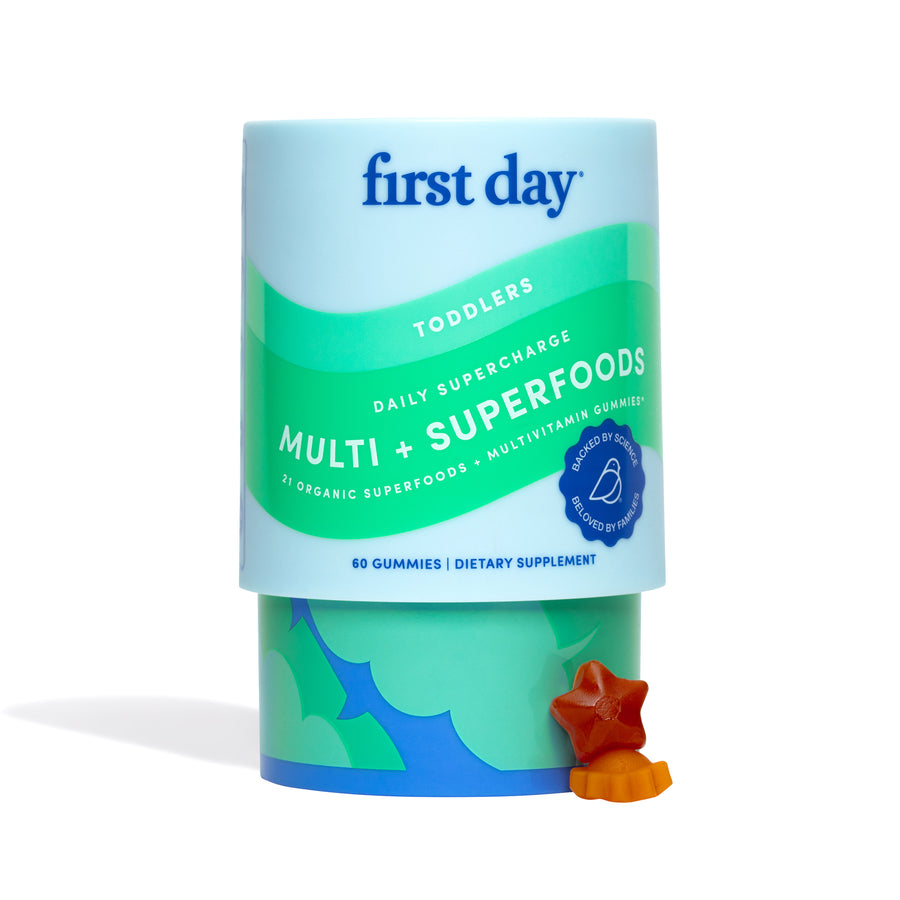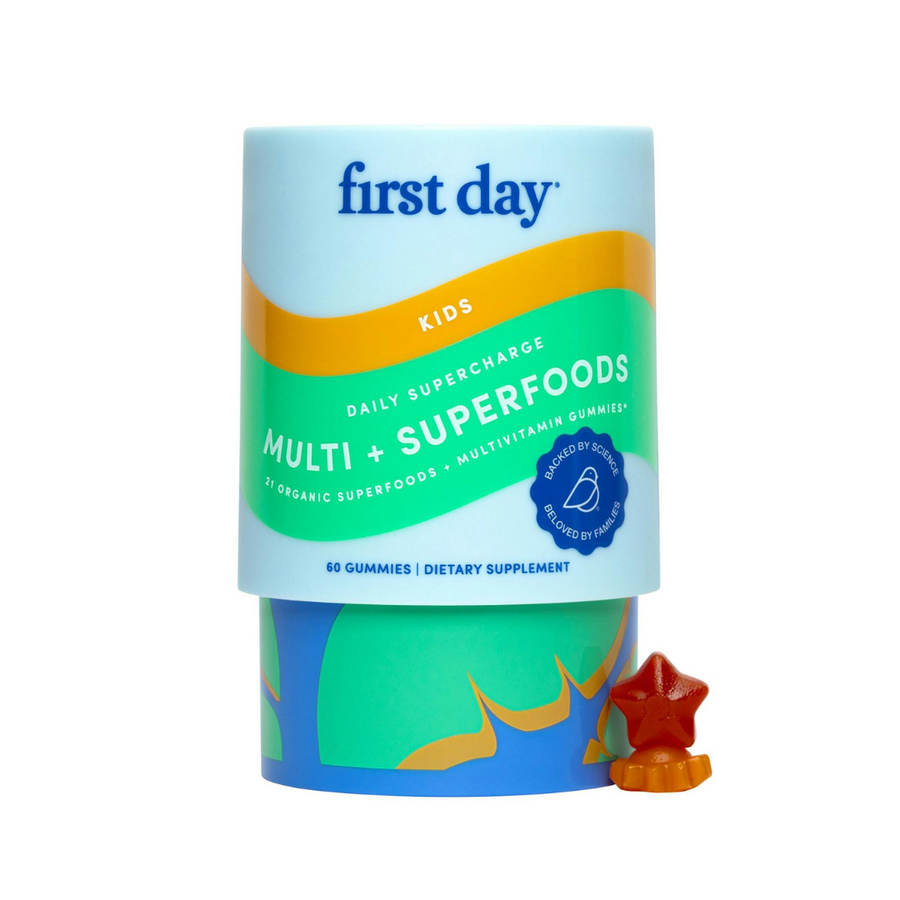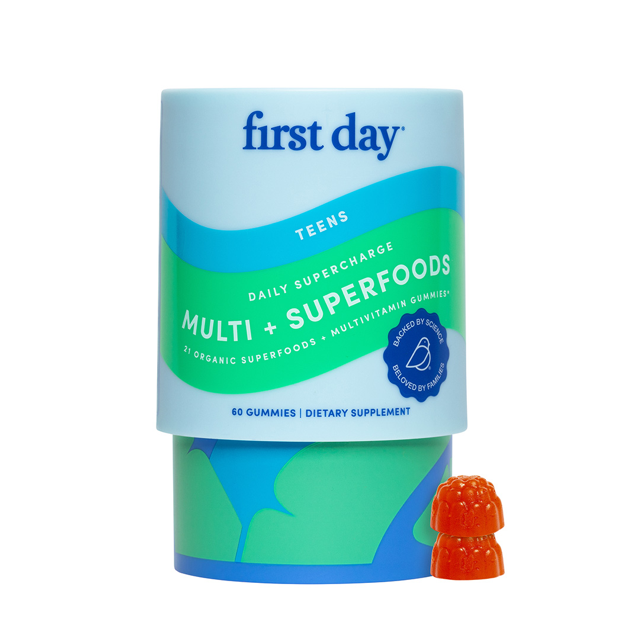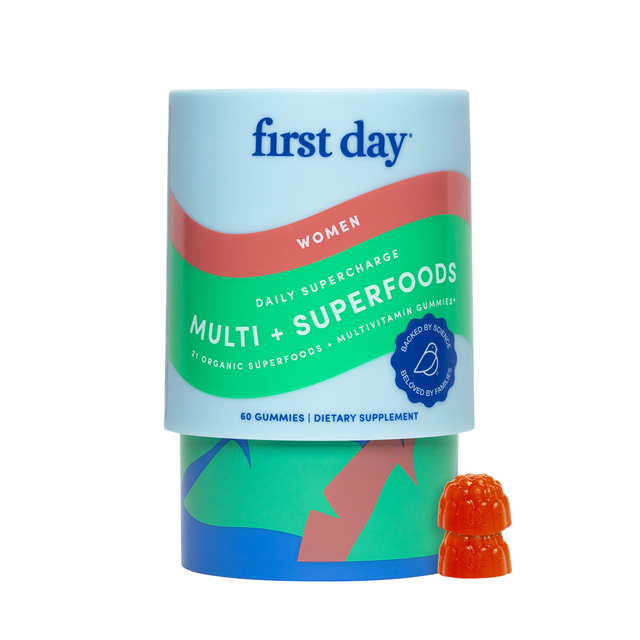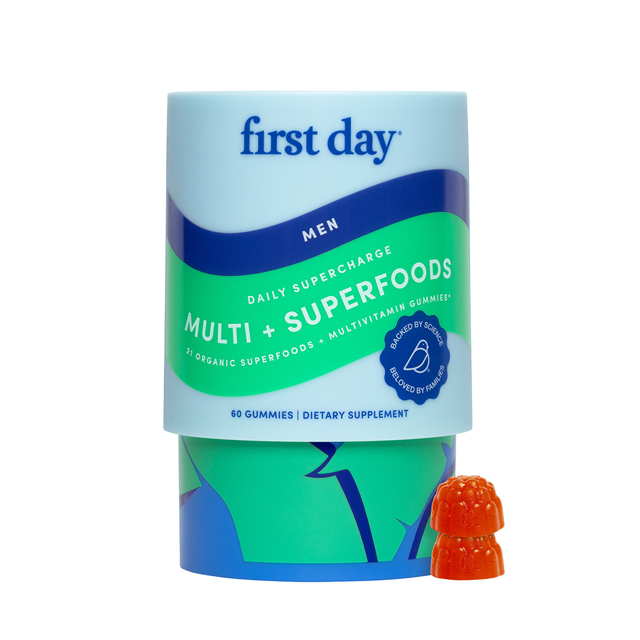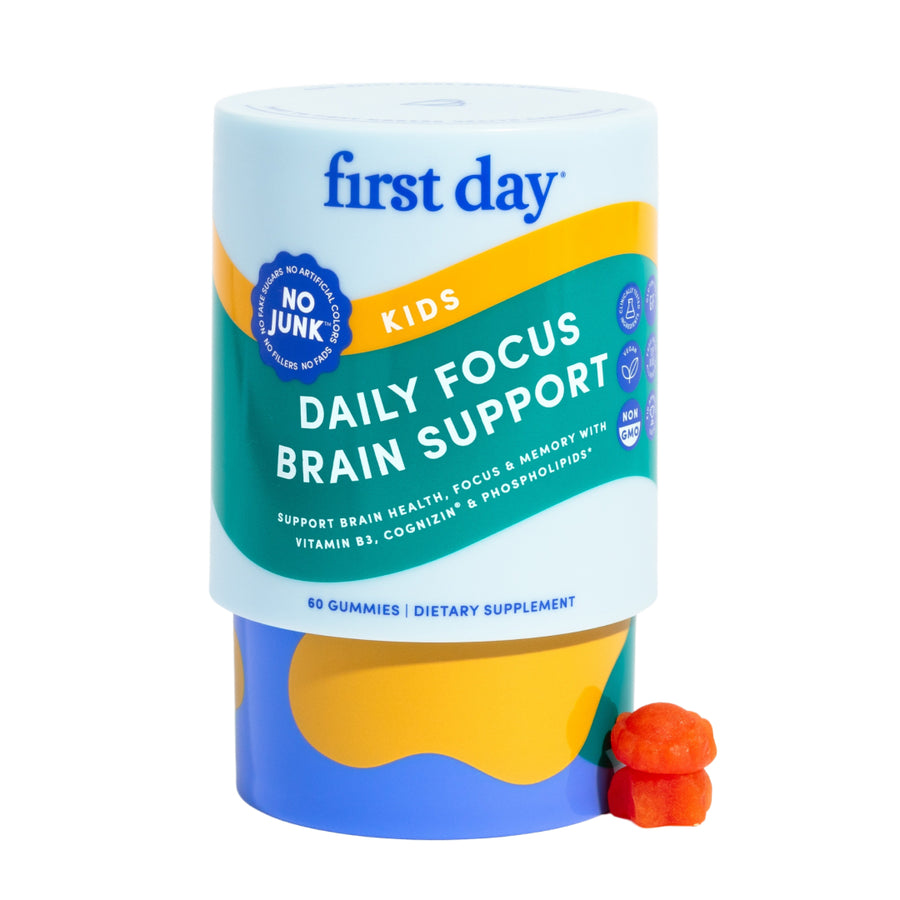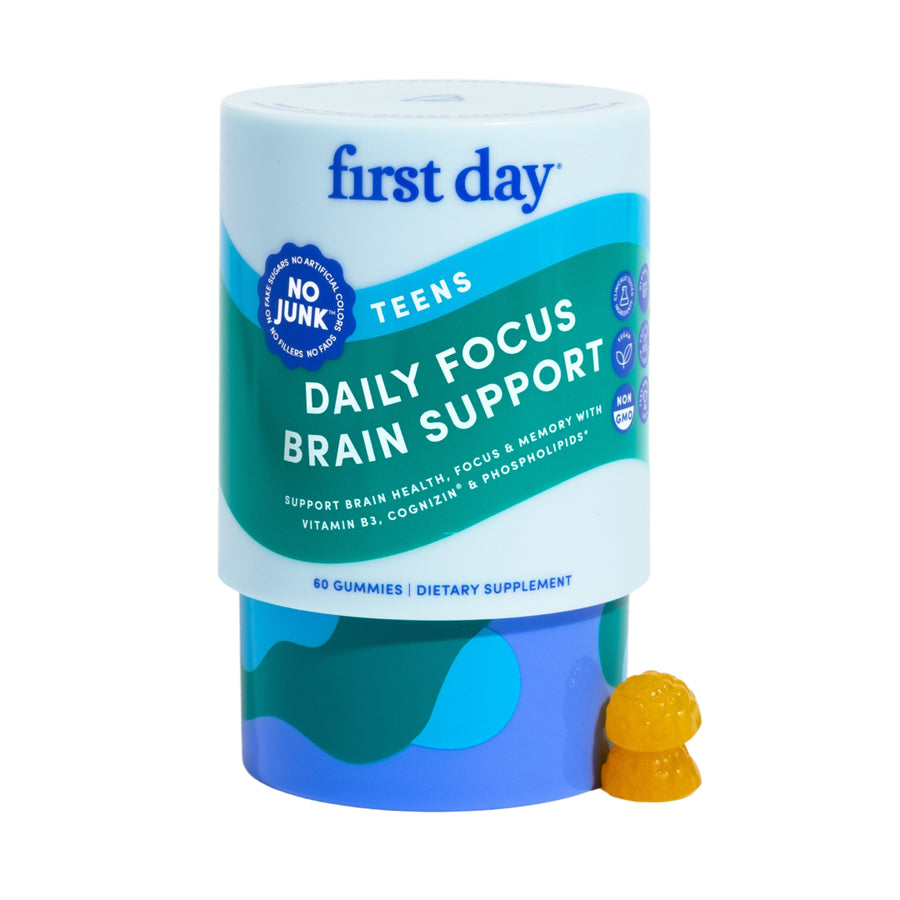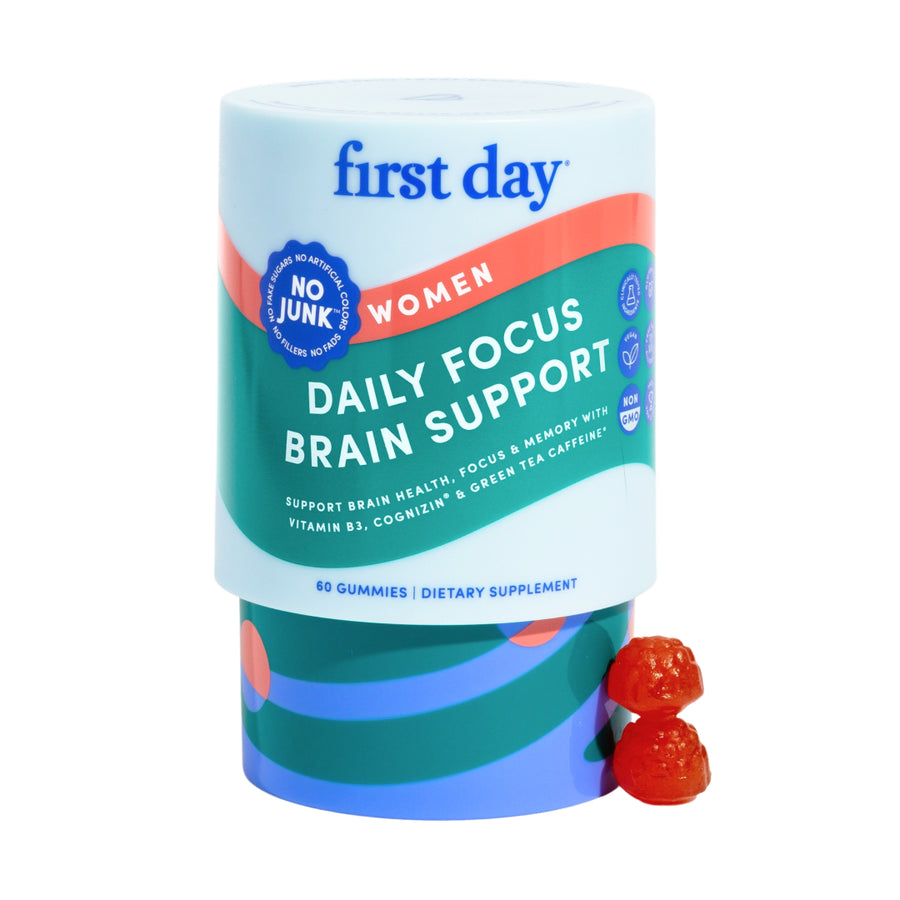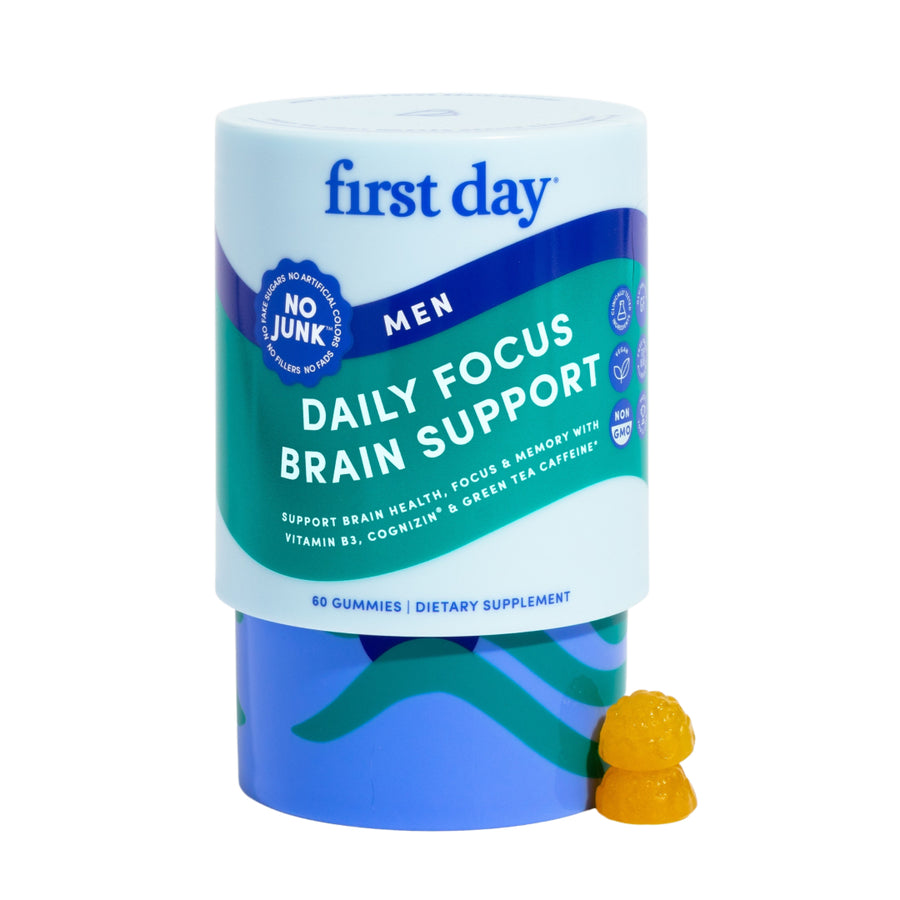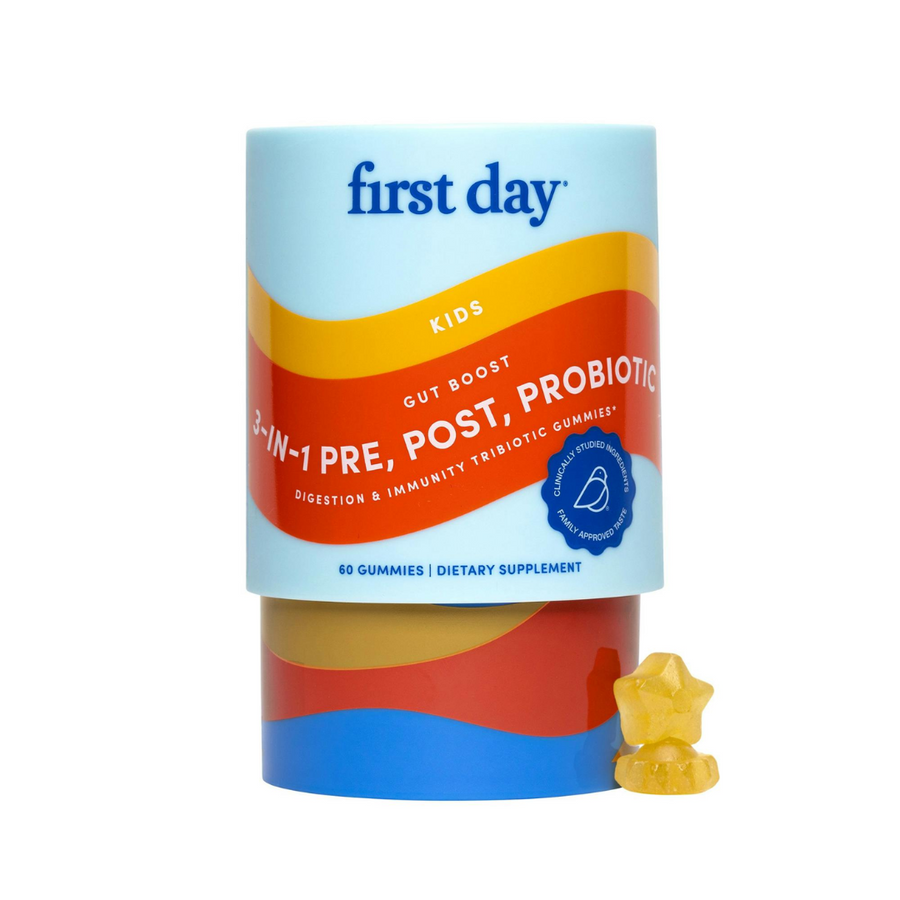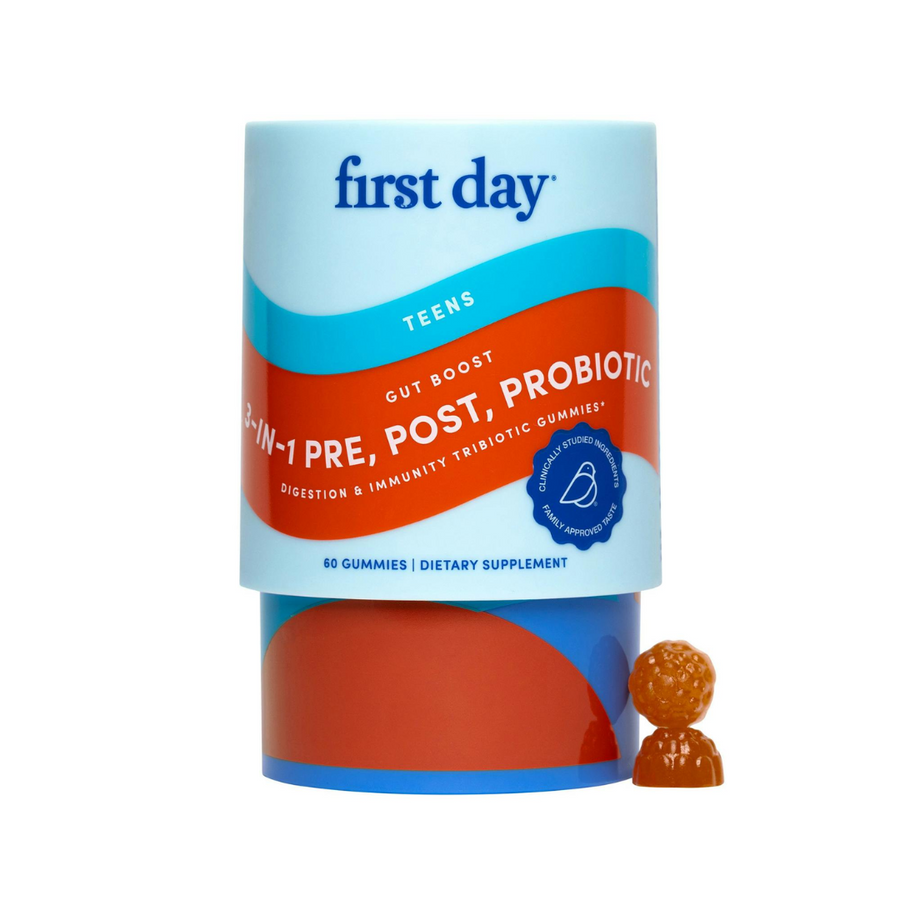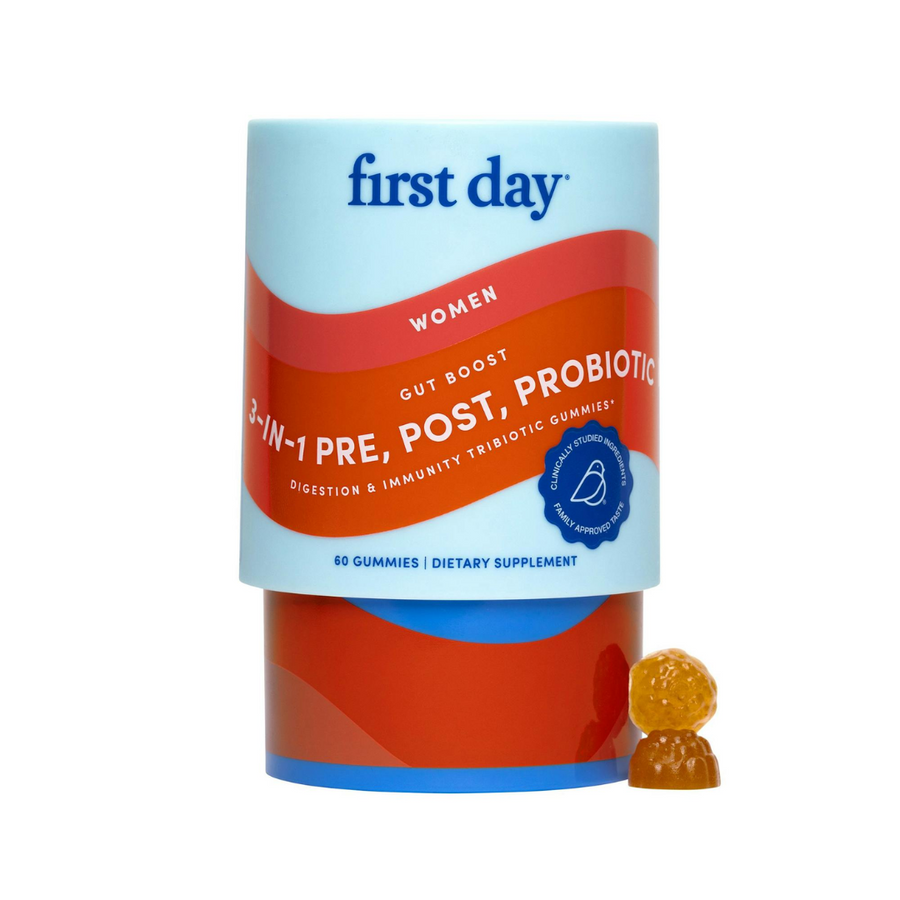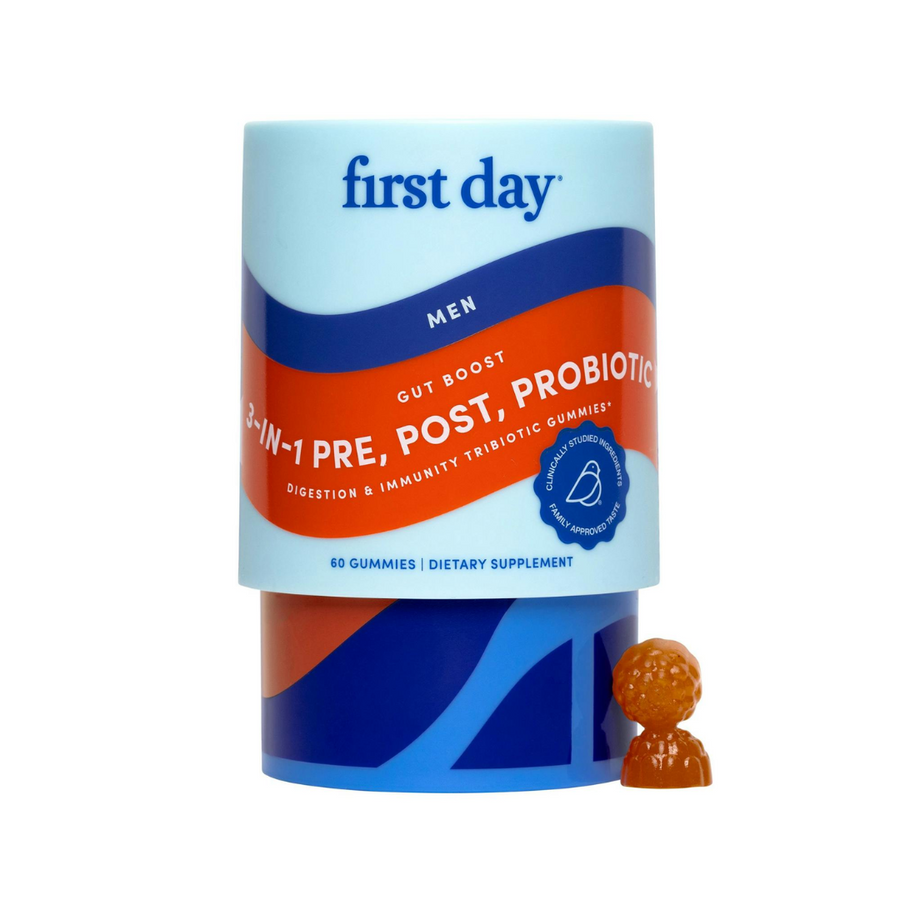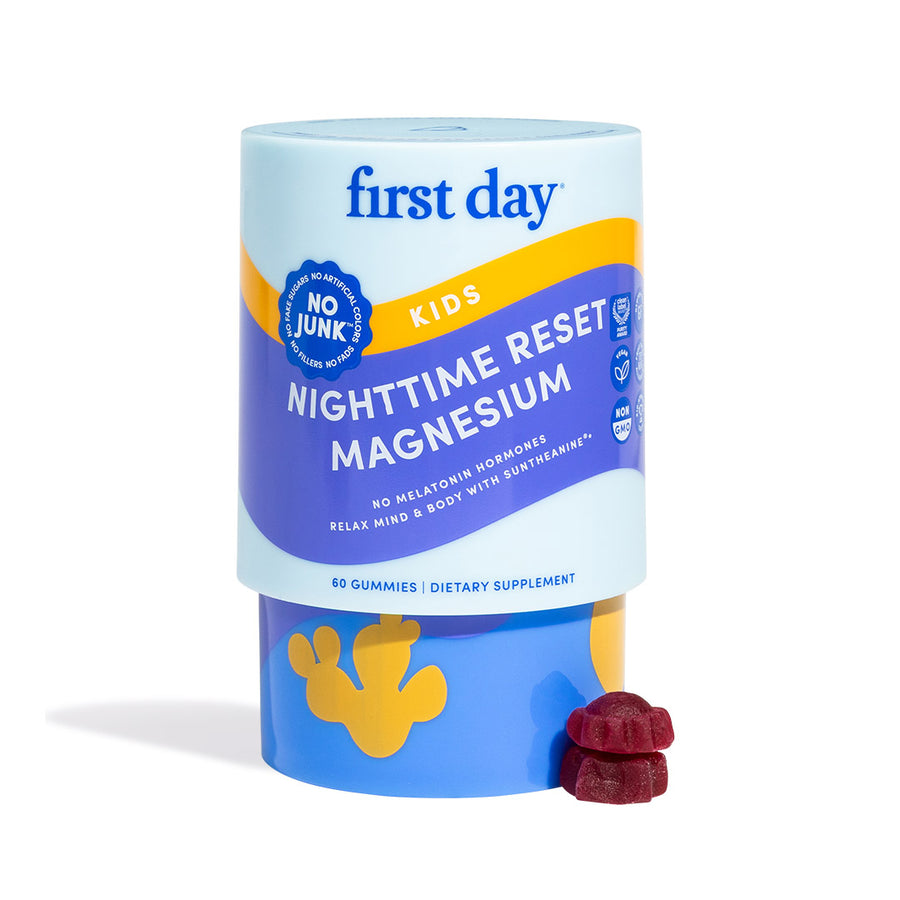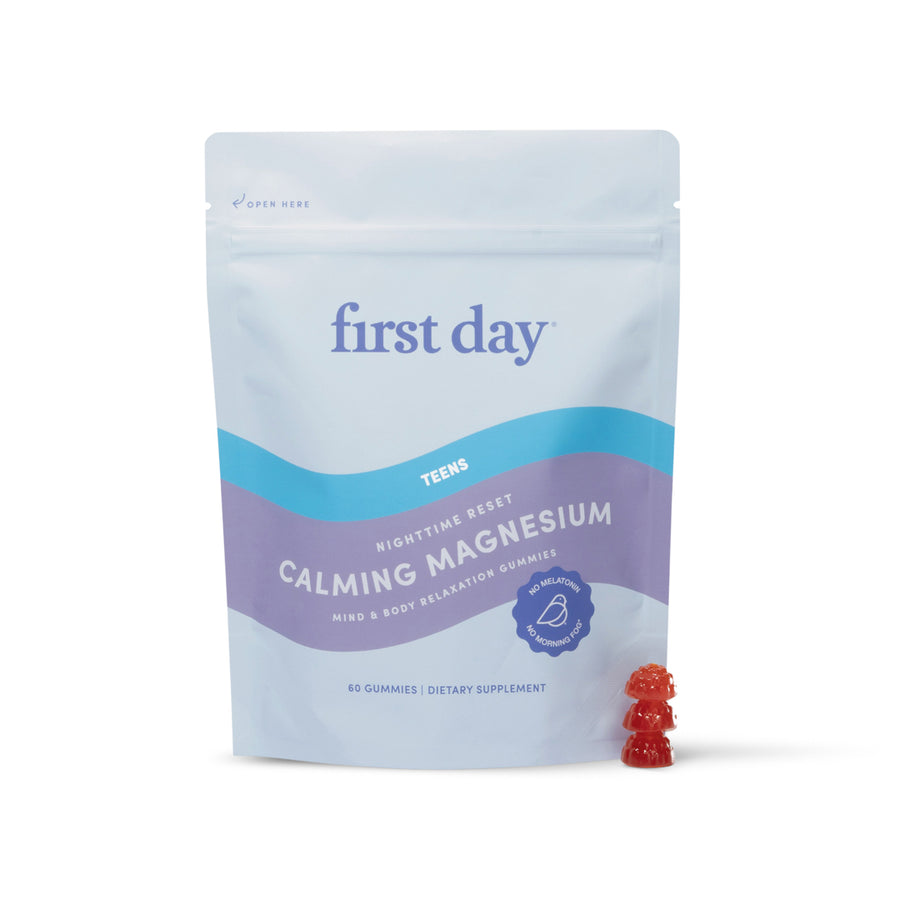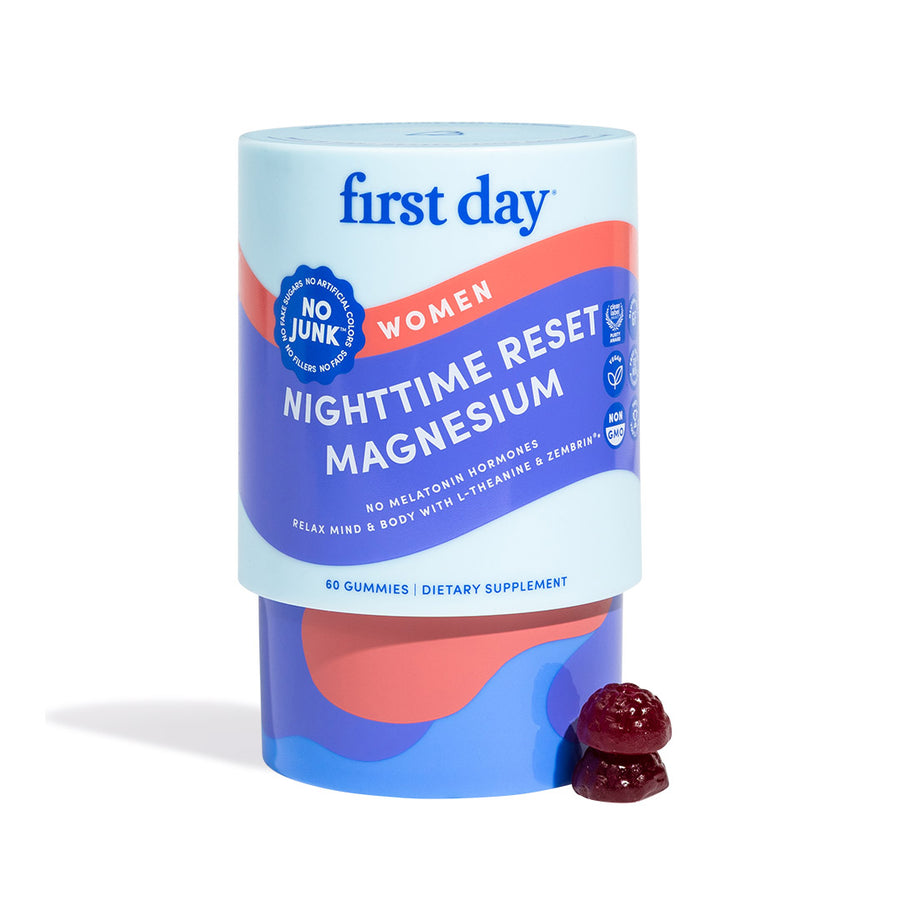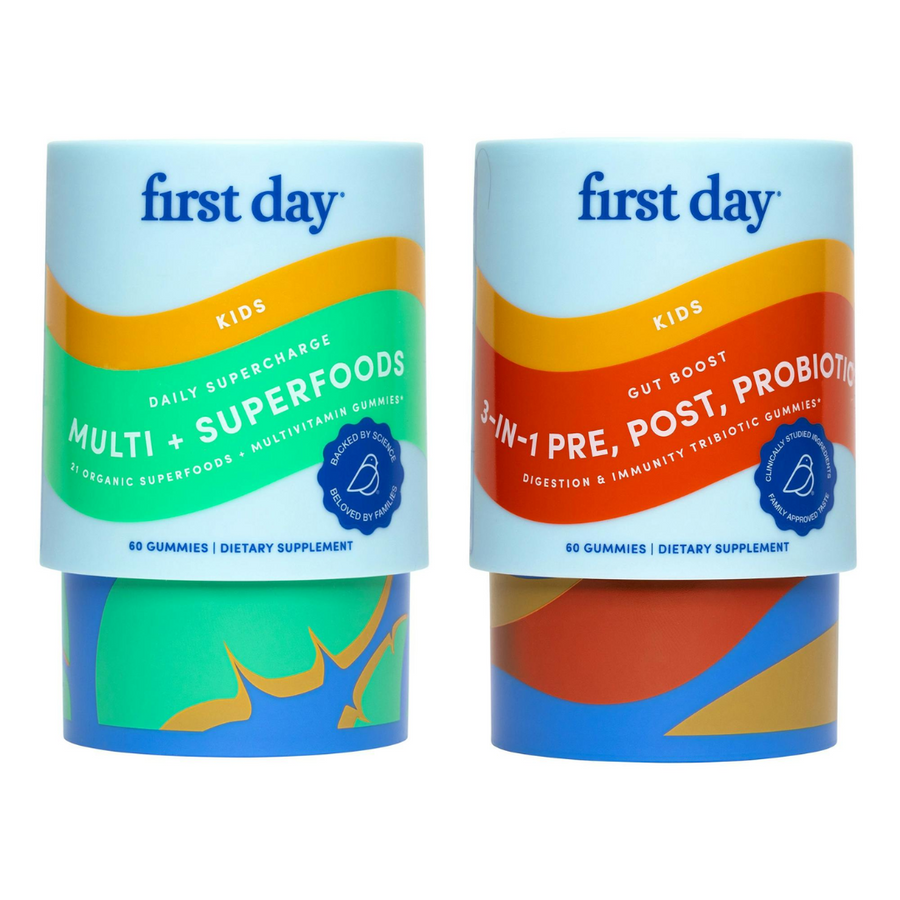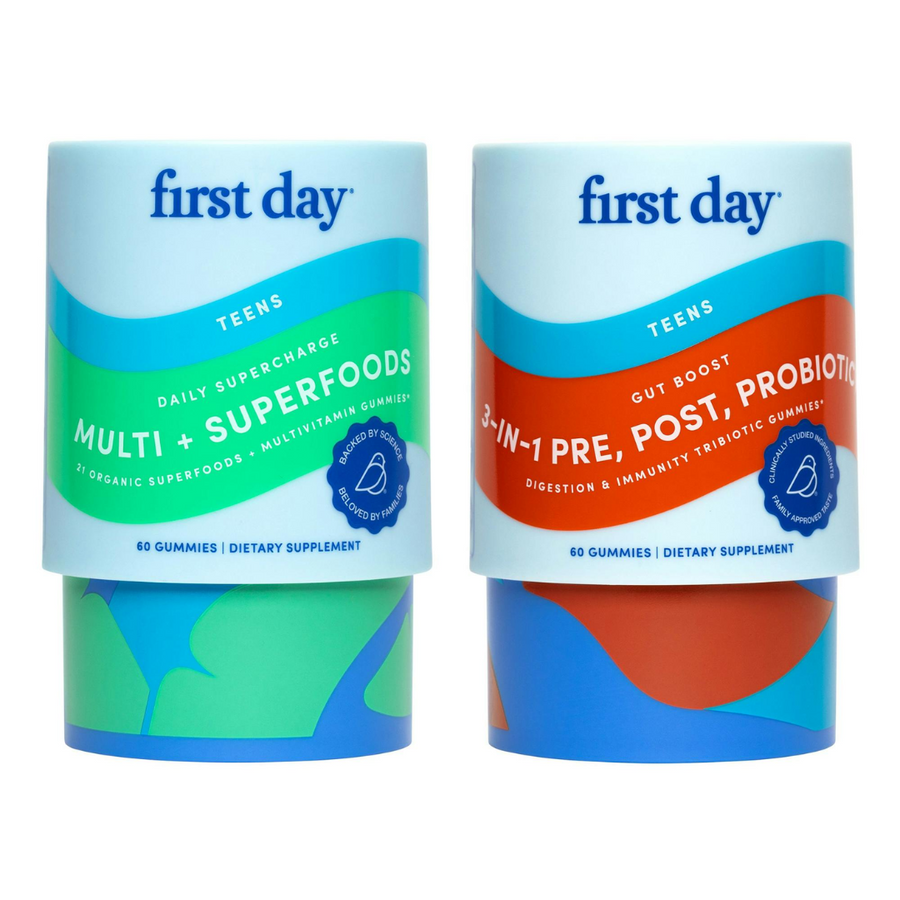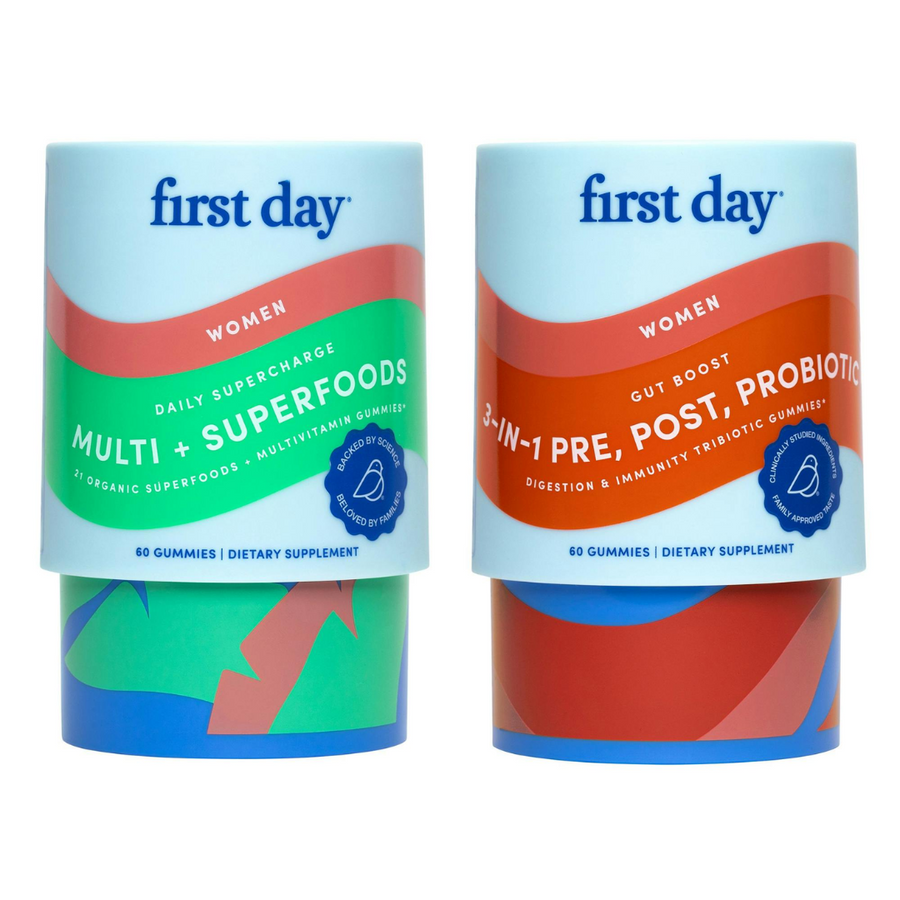Becoming future moms is no doubt exciting! It's also a time to take extra steps in ensuring your pregnancy is going to be as healthy as it can possibly be--both for you and your baby.
A healthy diet is still top priority. It allows your body to get tons of vitamins and minerals like iron, folic acid and calcium critical to your baby's development and your health.

If you're pregnant or trying to get pregnant, there are a lot of medications and supplements you can't take during pregnancy. However, with the help of your doctor, there are many prenatal vitamins you can take to support a healthy pregnancy.
What are prenatal vitamins?
Prenatal vitamins are multivitamins designed to help women who are trying to get pregnant, are pregnant, or breastfeeding.

These prenatal multivitamins contain essential nutrients crucial to ensure your healthy pregnancy and help prevent a plethora of possible birth defects. Taking prenatal vitamins also helps fill in the gaps if you're unable to eat a well-balanced diet everyday.
Folic acid
Folic acid or folate is a B vitamin that's important to take among pregnant and lactating women as well as those who want to conceive. Bodies use it to make new cells. It also aids in your baby's brain development. Furthermore, folic acid helps prevent birth defects like brain and spinal cord problems, which are called neural tube defects (NTD's).
Pregnant women need to take 400 to 800 micrograms (mcg) of folic acid everyday.
We can't stress enough how essential it is to pair your prenatal vitamins with a well-balanced diet. So seeking out foods rich in nutrients is always a good idea.
Some food sources rich in folate or folic acid are:
- legumes
- asparagus
- leafy greens
- beets
- Brussels sprouts
- citrus fruits
- nuts
- seeds
- papaya
- avocados
- bananas
- fortified grains
Iron
During pregnancy, it's more likely that you are not getting enough iron. It is a prenatal vitamin that boosts your energy, immune system and gastrointestinal function.
Iron in prenatal vitamins help supply oxygen to the fetus and helps in the placenta's development. Plus, it ensures you have a sufficient amount of red blood cells in your body.
Pregnant women need 27 milligrams (mg) of iron per day.
Some food sources rich in iron are:
- beans
- nuts
- dried fruit
- fortified grains
- red meat
- chicken
- fish
- eggs
Calcium
Pregnant women, or those trying to conceive need stronger bones to support the weight they’ll be carrying in the next nine months.
Calcium is one of the key nutrients to look out for when you take a prenatal vitamin. It plays an important role in the development of your baby's bones, muscles and teeth. It also helps in their heart and nerve function.
Pregnant women need 1,200 to 1,400 milligrams of calcium every day.
Docosahexaenoic acid (DHA)
DHA are omega 3 fatty acids that help fight inflammation, lower blood fat, reduce blood pressure and lower cholesterol. Moreover, it lowers the risk of coronary heart disease.
Omega 3 fatty acids also help prevent pregnancy-related complications. It's also an essential nutrient that will help develop the fetal brain and retina.
Pregnant women need 200 milligrams (mg) of omega 3 every day.
Some food sources rich in omega 3 are:
- nuts
- seeds
- seaweed
- pasture-raised chicken
- crab
- shrimp
- tofu
- leafy green vegetables
Other vitamins and minerals that are found in prenatals are:
Vitamin A
Vitamin A helps fetal development of eyes and skin. It is also critical to embryonic growth, including developing your baby's heart, lungs, kidney and eyes. Moreover, Vitamin C helps in your baby's respiratory, circulatory and central nervous system.
It's also great for pregnant women who are about to give birth as it aids in postpartum tissue repair.
Just remember that too much of it could lead to birth defects. So it's best to use a multivitamin with Vitamin A under 10,000 international units (UI).
Vitamin C
Vitamin C helps pregnant mothers heal better and also play a role in ensuring your baby will have healthy bones and teeth. During pregnancy, it helps you and your baby form collagen for tendons, skin and bones. Furthermore, Vitamin C helps boost both you and your baby's immune system.
Vitamin D
Vitamin D aids in absorbing calcium, which is instrumental to fetal bone and teeth form and function. It also helps your body gain more energy for the long months ahead.
Zinc
Zinc helps reduce the likelihood of preterm delivery. It also boosts your immune system, helps heal wounds and aid in maintaining your sense of smell and taste.
Iodine
Iodine helps develop your baby's brain and nervous system.
When to start taking prenatal vitamins
The question of when to start taking prenatal vitamins is often raised, especially among those who want to get pregnant, are pregnant, or those who recently conceived.
Ideally, women who want to conceive, would be pregnant or are now in postnatal care are encouraged to take a prenatal multivitamin.

The early weeks of pregnancy are especially crucial. The baby's neural tube, which turns into their brain and spinal cord, develops during the first month of pregnancy. Taking a prenatal vitamin will certainly help to ensure they have every shot at developing healthily. Don't think it's too late to begin taking prenatals when you're already halfway through your pregnancy. These supplements will still help you and your baby.
Taking prenatal vitamins even after pregnancy and during breastfeeding is also important. Being a mother to a newborn may hinder you from eating a healthy diet on a regular basis. These multivitamins will keep you healthy, energetic and able to care for your baby.
Apart from taking prenatals, it’s also helpful to cut back on unhealthy habits like smoking, drinking alcohol, or eating unhealthy foods. This way, you are ticking all the right boxes and ensuring that you could have the healthiest pregnancy possible.
When is the best time to take your prenatal vitamins?
There's no hard-and-fast rule as to which part of the day you should take a prenatal vitamin. Like every other supplement, they could be taken after breakfast or just before bedtime. What matters is you take your pre and post-natal supplements every day.
Why take prenatal vitamins?
Consider prenatal vitamins as a safety net to your nutrition. We understand how stressful it could be once you find out you're pregnant. It's bound to be a mental, physical and emotional roller coaster. Daily routines will be disrupted, as well as timely healthy meals and sufficient sleep. These multivitamins come with a lot of benefits for you and your future little one.
Prenatal vitamins are packed with nutrients your body needs to grow a healthy baby with less risk of complications. They're also crucial to support your healthy pregnancy.

Birth defects and complications are also possible. In addition to preventing neural tube defects, prenatal vitamins are found to fight iron and calcium deficiency, low birth weight, cleft lip and cleft palate, preterm delivery and preeclampsia: a pregnancy complication that affects blood pressure and organ function.
When you're pregnant, your body functions differently hence, some it will need extra amounts of specific nutrients. It's not only the baby you need to look out for but also yourself.
Side effects of prenatal vitamins
Generally speaking, there are little to no side effects to taking properly formulated prenatal vitamins for those who want to get pregnant, already are and are undergoing postnatal care. Always consult your doctor on suitable prenatal vitamins.
Some have reported minor side effects like an upset stomach, nausea, mild allergies and skin changes. All these are manageable with the help of your doctor. So take the time to go to your checkups. This will help you make a better sense of what you can or cannot take, especially if you have underlying health conditions you need to consider. It's also important to let your doctor know if you're switching brands.
If symptoms associated with prenatals or side effects persist, consult your gynaecologist. This way, you can stay on track and only take what's best for you.
Prenatal vitamins come in all forms nowadays, including capsules, gummies and even protein shakes. With the help of your doctor, choose which best helps you and your baby.
Prenatal vitamins aren't a replacement for a healthy diet
Taking prenatal supplements is a good idea. However, ensuring the health of you and your baby, whichever stage of pregnancy you are in, doesn't mean foregoing eating a well-balanced diet altogether.

Little things like preparing your healthy meals ahead of time, having your groceries delivered or asking for help go a long way.
It may come with its challenges but with support and a healthy mindset, try your best to eat nutritious foods, get enough rest and constantly find joy in bringing life to this world.

